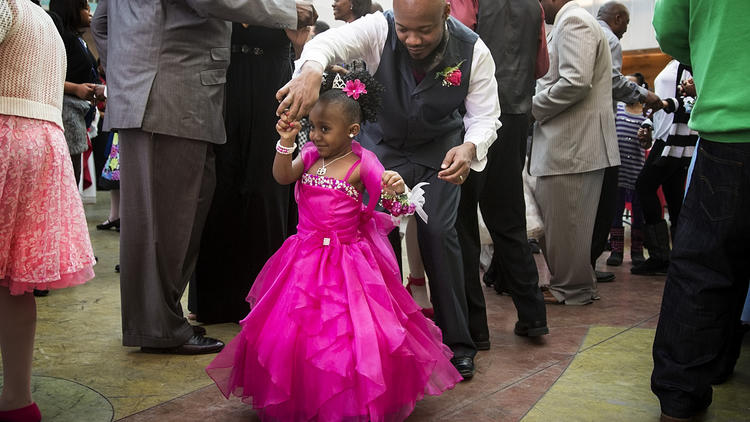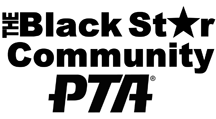| Links:
The Black Star Project's website:
Black Star Journal:
Become a Member:
Make a donation:

Like us on Facebook:
 Follow us on Twitter:
Follow us on Twitter:

|
|
|
|
|
Digital 'Slavery Simulation' Game for Schools
Draws Ire, Praise

By Benjamin Herold
on February 17, 2015
An award-winning, publicly
funded digital learning game that asks middle school students to assume
the role of a black slave in America is drawing sharp criticism from
some educators and activists, prompting fresh discussion about the role
of technology in teaching about painful eras of history.
In Mission US: Flight to
Freedom, players inhabit the fictional character of Lucy King, a
14-year-old girl who is attempting to escape the Kentucky plantation
where she and her family are enslaved. The free, Web-based game unfolds
in a choose-your-own-adventure format, with students asked to make
choices that affect the game's trajectory, within the context of the
historical realities of 1848.
"I don't know that you can
really channel the rape, murder, and mutilation of slavery into a game,"
said Rafranz Davis, a K-12 instructional technology specialist and
former high school teacher who has been leading an online and
social-media campaign to get the game withdrawn from schools, pending
further review.
"Our goal [with 'Flight to
Freedom'] is for all students to develop a greater respect for
African-Americans' struggle and African-American history as a part of
American history," said Kellie Castruita Specter, WNET's senior director
of communications and marketing, in a statement. Experts on U.S.
slavery and "racial literacy" consulted by Education Week said they
welcomed the potential for digital games and other new-media formats to
help students explore even the most troubling chapters of American
history-if such games can be used in ways the don't simply reflect and
repeat the deep-rooted problems inherent in the more traditional
classroom methods currently in use.
"We're already teaching
slavery in a way that's inaccurate, insensitive, and ahistorical," said
James Braxton Peterson, the director of the Africana Studies department
at Lehigh University in Pennsylvania. "I'm actually in favor of a more
sophisticated, enhanced version of this game."
|
|
A Call to End
Child Poverty Now
By Marian Wright Edelman
President, Children's Defense Fund
A Call to End Child Poverty Now
 It
is a national moral disgrace that there are 14.7 million poor children
and 6.5 million extremely poor children in the United States of America -
the world's largest economy. It is also unnecessary, costly and the
greatest threat to our future national, economic and military security.
There are more
poor children in America than the combined residents in six of our
largest U.S. cities: Los Angeles, Chicago, Houston, Philadelphia,
Phoenix, and San Antonio with a combined total population of 14.6
million residents. There are more children living in extreme poverty in
the United States (6.5 million) than there are total residents in 33
individual states and the District of Columbia.
The younger
children are the poorer during their years of greatest brain
development. Every other American baby is non-White and 1 in 2 Black
babies is poor, 150 years after slavery was legally abolished.
America's poor
children did not ask to be born; did not choose their parents, country,
state, neighborhood, race, color, or faith. In fact if they had been
born in 33 other industrialized countries they would be less likely to
be poor.
Among these 35
countries, America ranks 34th in relative child poverty - ahead only of
Romania whose economy is 99 percent smaller than ours.
The United
Kingdom, whose economy, if it were an American state, would rank just
above Mississippi according to the Washington Post, committed to and
succeeded in cutting its child poverty rate by half in 10 years.
The Children's
Defense Fund just released a groundbreaking new report, Ending Child
Poverty Now, that calls for an end to child poverty in the richest
nation on earth with a 60 percent reduction immediately.
Click Here to Read Full Report, Ending Childhood Poverty Now
|
|
Parents, Educators and Community Members Should Attend the
Educate or Die
Lecture Series
and
The Black Star Community PTA Meeting
Featuring
Dr. Larry Muhammad
Who Will Discuss the
Unlocking Genius Institute
and
Building Intellectual Equity

Founded
by Dr. Larry Muhammad, the Unlocking Genius Institute takes a fresh
approach to Black History Month and created a four week course into the
following topics. "Black Creativity and Black Genius, The Power
of Study/The Skills needed to mastering any Subject," "Building
Intellectual Equity," and "STEM (Science, Technology, Engineering,
Math), Healthcare and Economics.
The
aim of the Unlocking Genius Institute is to start a new tradition for
Black History Month by not just celebrating Black heroes, but taking the
time and opportunity to focus on learning and building a better
learning environment.
Whether you are a student,
parent or teacher in a public, charter, independent or home school, the
"Building Intellectual Equity" special online Black History Month course
offers something to empower people of all ages, families, educators,
and those who love learning.
Saturday, February 28, 2015,
9:30 am to 11:00 am
at The Black Star Project
3509 South King Drive
Chicago, Illinois
Please call 773.285.9600 for more information.
Click Here to Learn More about the "Unlocking Genius Institute"
|
|
Breaking the School-
to-Prison Pipeline
sponsored by
Citizens United to
Save The Southland
with
Dr. Bambade Shakoor-Abdullah
The Honorable David Johnson
and Phillip Jackson
Saturday, February 28, 2015
12:30 pm
Thornwood High School
17101 South Park
South Holland, Illinois
|
|
$10,000 Award for Schools Best In Educating
Young Men and Boys of Color

|

YOU'RE IN THE CHICAGO TRIBUNE!
|
| Reporter Lolly Bowean celebrates the Daddy-Daughter Dance |
As many of you know (because you participated) last Saturday we had
our annual Daddy-Daughter Dance to celebrate men and fatherhood! Lolly Bowean from the Chicago Tribune quotes Kelly Fair: "There are men out here who are responsible, loving, trusting, caring and doing good things...We want our girls to see them."
Bowean believes that the Daddy-Daughter Dance is the perfect way to celebrate the positive influence men have on our girls' lives. "At
the event, girls can bring their fathers, uncles, cousins or brothers
to serve as male role models. For girls who don't have a relationship
with their biological father, Fair finds volunteers to step in and
accompany the girls."
|
 |
|
By Lolly Bowean, Chicago Tribune
February 13, 2015
As the mellow sounds of
soul music played, Willie Bailey grabbed his 7-year-old daughter's hand
and twirled her in a circle. He pulled her close, placed a hand on her
shoulder, and the two bopped back and forth in a two-step, laughing and
giggling.
"I feel so happy," Bailey's daughter, Taniya said after they stopped moving. "I feel pretty."
Bailey and his daughter
were among dozens of father-daughter couples gathered on the South Side
recently at a party designed to spotlight the role of black fathers in
their daughter's lives. For Bailey, the event was a way to celebrate his
love for his youngest daughter. It was a reason, too, for her to get
dressed up and be the center of attention for a day.
"I wouldn't miss this for
the world," said Bailey, 45, of Oak Park, who has attended the event
three years in a row. "I love it because it gives us a chance to spend
time together, just us."
 |
|
Israel Townsel dances with his daughter Egypt, 4. (Andrew A. Nelles, Chicago Tribune)
|
In
recent years, African-Americans have started to host and participate in
the social events as a way of highlighting the role fathers play in
helping their daughters develop self-esteem and feel supported and
validated.
The
Black Star Project, which has hosted such events for six years, had its
biggest turnout this year, officials with the education advocacy group
said. Another Chicago group that hosts a similar affair also reported an
increase in interest. At Haley Elementary Academy in the Roseland and
West Pullman communities, school leaders have planned their first
father-daughter dance for later this year, Principal Sherry Pirtle said.
That growing interest in
father-daughter dances comes amid a long-standing push in
African-American communities to keep fathers involved in the lives of
their sons.
In Illinois, 74 percent of
black children in 2013 were being raised by single parents. But just
because many black children are being raised by single parents doesn't
mean that their fathers aren't involved or aren't the primary
caregivers, according to Waldo Johnson Jr., an associate professor in
the University of Chicago's School of Social Service Administration.
The dance started with a meal and featured a performance by a magician. Then it was time to dance.
 |
|
Several
girls do a line dance during the event Feb. 7, 2015, at Little Black
Pearl in Chicago. (Andrew A. Nelles, Chicago Tribune)
|
From
the day his daughter was born, Israel Townsel has been her primary
caretaker, he said. His relationship with his daughter's mother didn't
work out. But he wanted to make sure his daughter was brought up in a
stable home with her father as provider and biggest supporter.
"We get such a bad
reputation for what a few men have done," said Townsel, 37, of
Bronzeville. "It feels good to be in a room full of men who love being
fathers."
Besides
bringing his daughter Egypt, 4, to the dance, Townsel brought his
niece, Dyamond Roberts, 11. The girls were dressed in coordinated
magenta gowns with black and silver necklaces.
"I'm a dad and I do it all," said Townsel, beaming with pride. "Yes, I did her hair myself. I picked out the dress, shoes.
Click Here to Read Full Story and Leave a Positive Comment for the Chicago Tribune
Click Here to See a Gallery of Daddy Daughter Dance Photos
Click Here to Leave a Comment for The Black Star Project
Click Here to Bring the Daddy-Daughter Dance to Your City
|
|
|




 It
is a national moral disgrace that there are 14.7 million poor children
and 6.5 million extremely poor children in the United States of America -
the world's largest economy. It is also unnecessary, costly and the
greatest threat to our future national, economic and military security.
It
is a national moral disgrace that there are 14.7 million poor children
and 6.5 million extremely poor children in the United States of America -
the world's largest economy. It is also unnecessary, costly and the
greatest threat to our future national, economic and military security.





No comments:
Post a Comment